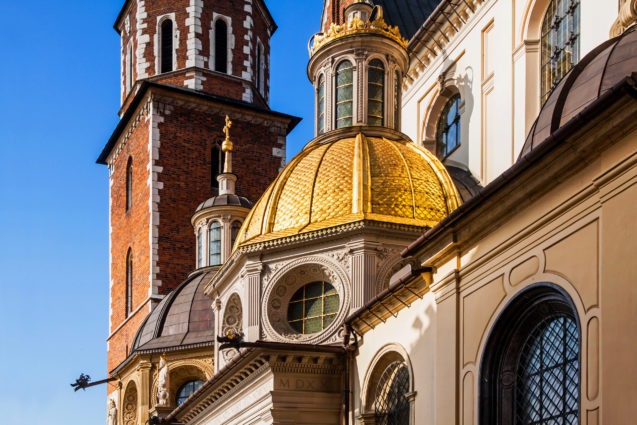Nowadays, visitors take away a sense of delight from Poland’s charming cities and a sense of awe from the stunning natural beauty of its countryside, so it seems strange to reflect that heroic resilience and tragedy are two hallmarks of its remarkable tale.
Poland’s history is replete with romantic tales of medieval knights and heroic kings in their splendid castles, yet in recent years it is the horror and destruction of World War II and its determined stand against communism that come to the forefront.
Poland today boasts a positive, modern outlook and is buoyed by its booming economy. Corporate travel agencies serving Poland have never been busier and its economic future looks very bright indeed.
Poland’s capital, Warsaw, was almost totally destroyed by the war, yet this determined nation has rebuilt it from the ground up. It now presents an unusual mix of beautifully restored historic buildings, communist-era concrete structures, and modern fashion boutiques and enticing temples to consumerism.
It is hard to believe that this vibrant nation was devastated by World War II, losing about a quarter of its population and almost its entire Jewish community. Former Jewish centres in the cities and the stark concentration camps, where Nazi atrocities were carried out, remain as the most stirring reminders of the nation’s tragedies.
The maritime city of Gdansk holds several historic claims to fame, as well as plenty of contemporary pleasures. The home to the legendary Lenin Shipyards was the stage for both the beginnings of the Second World War and the disintegration of communism in Eastern Europe.
Justifiably, though, it is Krakow, the ancient royal capital, that draws the crowds. This gracious city rivals the elegance of Prague and Vienna and, thankfully, it largely escaped the destruction of the war. Its charming medieval character shines through, from the Royal Castle to the grand Market Square. Its old Jewish quarter, and the nearby Nazi death camps of Auschwitz, are all steeped in historical importance and resonance.
The unspoilt Baltic coastline of Poland and its rugged mountain ranges will impress lovers of the great outdoors.
With its strong musical and cultural identity, a flourishing tourist infrastructure and its historic and natural sights it is no wonder Poland is experiencing a remarkable increase in popularity among discerning travellers.
Climate
Poland has a temperate climate with cold winters and warm summers.
Winters can be particularly severe inland from the Baltic coast, with January temperatures averaging -5 degrees Celsius (23 degrees Fahrenheit). Thankfully, in summer it is much warmer, especially inland, with July temperatures averaging 19 degrees Celsius (66 degrees Fahrenheit).
Language
The national language is Polish but English is widely used in tourist areas.
Passport Visa
Poland is a member of the European Union. You may need a Schengen visa (short stay visa) to stay in the country for more than 90 days. Please check the rules around visa requirements before you travel, as they may change regularly.
Safety
Tourists should be alert to the risk of robbery in tourist areas in large cities in Poland, particularly in the vicinity of hotels, markets and banks.
Our Services
For all your high-end, bespoke leisure and corporate travel needs to Poland, contact our Travel Managers on 0203 535 9290 or info@simplexitytravel.com today.
Website Disclaimer
The content of this page and this website is provided for your general information purposes only. While we try to make sure that the information detailed is accurate and up-to-date, we cannot promise that it will be and any reliance that you may place on the information on this website is at your own risk. For further information on this and other matters relating to the website, please refer to our Website Terms and Conditions.

